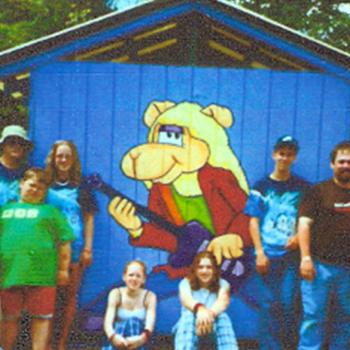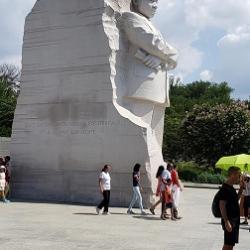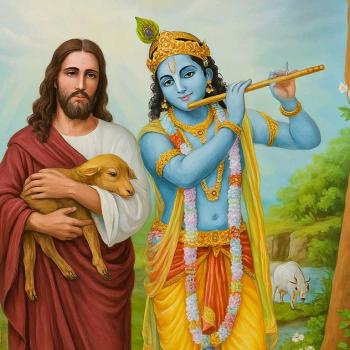I collect refrigerator magnets that capture some of my favorite moments. You'll find many familiar faces under clear plastic frames, loved ones from far and near. The rest of the door is littered with keepsakes from favorite travel destinations. One magnet, quoting Italian author and poet, Cesare Pavese, explains them all: "We do not remember days. We remember moments."
The power of memory is at once a terrible and tremendous gift. I have learned that the more I recall, with gratitude and thanksgiving, the things that bring me freedom and joy, the more I am drawn to remember them when terrible things strike. Such memories bind and hold me together, anchors against strong tides. Leaning into difficult moments, I sift the value of their import against what I hold true.
I recently came out of the confessional after a tender, grace-filled moment with Jesus in the sacrament of Reconciliation, having released a deep emotional wound. Minutes later in the pew, after my prayers of release and relief, I sought to linger in the peaceful presence of God.
I opened my Bible to the fifth chapter of John. The words on the sacred page seemed as if they were written just for me. The text described Jesus' instantaneous healing of a paralyzed man whose affliction had disabled him for thirty-eight years. This, after I had just experienced something lifted from my heart that had crippled me for about the same length of time. Those verses were a second gift from Jesus, a bonus to the graces of the sacrament, given to me, no doubt, so I wouldn't miss the point. The formerly paralyzed man didn't keep his news to himself. And so, here I am, in imitation.
Jesus could not have been any more real to me than if he walked into the chapel and sat down next to me. I will hold onto that for some time to come and cherish it as I, too, learn how to walk with stronger legs after Jesus.
That moment in the chapel was just the most recent in a series of Jesus moments in my life. I could never have constructed it, or imagined it on my own. It was totally orchestrated by him. Like a lover's spontaneous kiss that renders you speechless, it begs only to be received.
For the word of God is living and active, sharper than any two-edged sword, piercing to the division of soul and spirit, of joints and marrow, and discerning the thoughts and intentions of the heart (Heb. 4:12).
That night Jesus was present in both moments: in the sacrament that was a holy intervention of his grace, and in his living word to me.
The Jesus in my moment is the same Jesus of Nazareth who lived and breathed in the Gospels. The same God-man who divinely encountered the people of his day, still sparks human encounters with him in our own day.
He is alive in Word and Sacrament.
On the night before he died, like a last will and testament, or a final lecture before a test, the last words of Jesus would hugely impact the futures of his friends. That night, he spoke from the heart to his dearest companions, upon whom his legacy would be borne or rejected.
It was an intense moment, in a series of powerful moments, heightened by foreknowledge of a looming death.
I will no longer talk much with you, for the ruler of this world is coming. He has no power over me; but I do as the Father has commanded me, so that the world may know that I love the Father (Jn. 14:30-31).
John, present at Jesus' side, captures the intimacy of the moment . . . I have called you friends (Jn. 15:15).
I dearly recall the last words and deeds of my friends who have left this earth. These are holy moments whose dates I may not recall, but whose presence is permanently etched in my mind, vividly transporting me to where they happened.
Yes, we remember moments, especially when we gather to pass on what needs to be said and to give those things that need to be given.
So, too, with Jesus and his apostles on his final night.
One last meal. One last conversation. One last prayer.
Jesus would take, bless, break, and give the bread from his hands, and offer the wine from the cup.
This is my Body (Cf. Mt. 26:26; Mk. 14:22; Lk. 22:19).
Not just bread. Not just wine. Jesus is now present in the gifts—mysteries begging to be received, shared.
Memory helps the heart attach meaning and significance to what the mind can scarcely take in. When words fail, the heart sees and receives. How many apostles—in that moment, or in the days that followed—had hearts remembering another moment, when so many left Jesus because his teaching was too hard, too unfathomable?
I am the living bread which came down from heaven; if any one eats of this bread, he will live for ever; and the bread which I shall give for the life of the world is my flesh . . .





